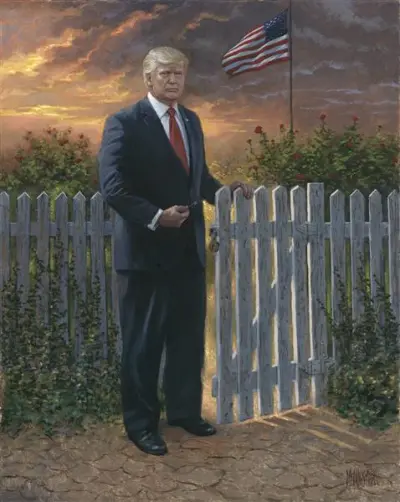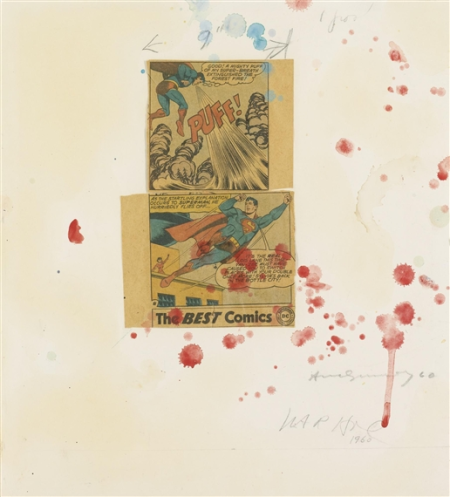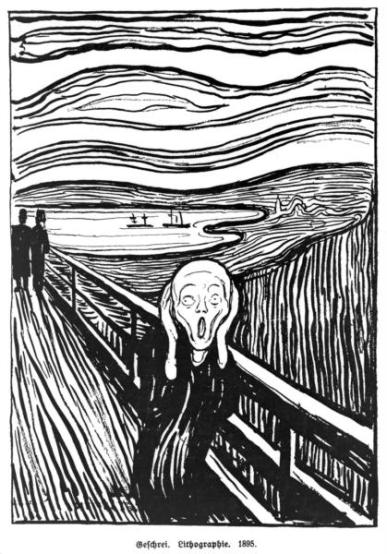 The grand finale of our Winter 2019 issue— and of FLAPPERHOUSE’s five-year run– is E.L. Siegelstein‘s sharply satirical short story “The Trump Wedding.”
The grand finale of our Winter 2019 issue— and of FLAPPERHOUSE’s five-year run– is E.L. Siegelstein‘s sharply satirical short story “The Trump Wedding.”
{ X }
THE CADILLAC SHOT DOWN THE HIGHWAY at a casual 90, an American-made fiberglass comet with a diesel-exhaust tail. Inside, Craig shut all the window shades, locking the world outside, and opened the nip bottle of Old Forester he had stashed in his jacket pocket on his way out of the office.
“Play white noise,” he told the A.I., and he closed his eyes and drank and thought about nothing at all for twenty minutes while the car took care of all the driving itself. It was Craig’s me-time, all he ever really got, and he enjoyed it thoroughly.
He must have dozed off, because he awoke with a start when the A.I. announced in its pleasant, servile voice, “You’ve arrived. Welcome home, Craig.”
The house was a late-model Neo-Deco demimanse, so-called because “mini-mansion” sounded tacky. It had more rooms than they really had any use for, some of which Craig never entered at all. Keeping it clean and climate-controlled was a bigger expense than Craig could realistically afford. Entering from the garage, he walked right into the back of another one.
“Excuse me, Doug,” Craig said to the cameraman his wife paid to give her streaming channel a more professional appearance.
“Please ignore me,” said Doug. He was a slight, sturdy man with dark hair and precision-sculpted stubble, and the build of someone who didn’t have time to go to a gym, but instead actually lifted and carried heavy items on a daily basis. His store-brand deodorant did a middling job masking the tang of a man whose very survival depended on the timely arrival of his next paycheck. Craig felt sorry for him, even as he resented Doug’s presence in his house.
Craig’s wife, Rayliee, and teenaged daughter, Rutherford, were tearfully embracing. Their resemblance was striking, a pair of slender, perfectly-coiffed, camera-ready blondes. Rayliee liked to say that they were often mistaken for sisters, though Craig knew that never actually happened.
“What’s wrong?” he asked, taking off his gun and dropping it in the bowl by the door.
Rayliee dabbed the tears from her eyes with a silk designer handkerchief. “Ruthie’s fashion line was bought,” she said. “By Target!”
“Oh,” said Craig. “Congratulations, that’s wonderful.”
Rutherford burst into tears anew. “You don’t know anything!” she screamed as she stomped out of the room.
“Jesus Christ, Craig,” Rayliee said.
“What?”
“Target? Who the fuck shops at Target? Nobodies. Fucking middie’s wives and… and… working women! It would have been better if no one bought her line at all, at least then she could spin that she’s ahead of her time, and she’d still have some cachet. But Target? That’s like, ‘Congratulations, you did it, and you’re mediocre. Just like your…’”
Rayliee stopped herself.
“Just like her what?”
Craig could see Doug in his peripheral vision, getting a closeup.
“Never mind,” Rayliee said. “So, did we get our invite yet?”
Craig froze. He could tell this was something important to his wife, but he had no idea what the hell she was talking about.
“Craig?” Rayliee demanded. “Earth to Craig? Are you having a stroke or something?”
“No, no,” Craig said. “Our invite to what?”
“The wedding, Craig.”
“Whose wedding?”
Rayliee exploded. “Jesus fucking shit, Craig, are you stoned? Or did you just hit your head really hard? The Trump wedding, Craig, the Trump wedding.”
It was the biggest event in the world. The biggest, glitziest, most fabulous, most expensive, most historic wedding in the history of human civilization. Everybody who was anybody was going, plus another thousand wannabes and climbers. It was all the Twittersphere could talk about. It was all the real Fox media wanted to talk about. It was all the lamestream media was allowed to talk about.
“Right, right,” Craig said. “I didn’t realize you wanted to go to that. Which one is getting married again?”
Rayliee’s eyes went wide. “Are you kidding me?”
Doug’s camera swung around, from Rayliee’s face to Craig’s.
Craig smiled. “Yes, of course that was a joke. Ha-ha!”
Rayliee stared at him, lips sealed, eyebrows raised in threatening challenge, calling his bluff.
“It’s Yuri?” Craig guessed.
“Andrei, you doofus, Andrei,” she said. “To Meegan White, who you may recognize as both the heir to the Remington fortune, Miss U.S.A., and the winner of a little show you might have heard of called Mrs. Trump? In case you missed it, it was the highest rated reality competition series of all time? We fucking watched it together, Craig.”
Tuning out whatever his wife was watching was one of the few things, Craig believed, that he was truly great at. Tonight, it seemed to be his downfall.
“Sure, sure, sure sure sure,” he said. “And Andrei is… sixth in line to The Donald?”
“Fourth!” Rayliee screamed, voice cracking. “We don’t have an invite, do we? Oh, you little bitch. Daddy said you weren’t alpha enough, that you didn’t carry status and we’d just end up being middies, like a bunch of losers. That can’t be true, it can’t. It’s not? Isn’t it?”
She angled her head so that Doug’s camera could get a good shot of the tears welling in her eyes.
“No, darling. Of course we’re going to the Trump wedding,” Craig lied to his wife. “I was just messing with you a bit, it was all a joke. I took it too far, I’m sorry.”
“Oh, thank you, Jesus.” Rayliee wiped away her tears. “You have to stop doing that! So, where are we sitting? What level invite do we have?”
Craig had no answer for that. To have an answer, he’d need an invitation.
“Shit, you know how hard I work, I don’t remember. I’ll have to look at it tomorrow, I left it at the office.”
“You know you need the invitation in hand to get in, right?” It was the best way to encourage sales on the secondary market, on which the Trump Organization would take a cut. “Any janitor could just pick it up, and then our seats would be his, and there’d be fuck-all we could do about it!”
“It’s in a safe place,” Craig said. Probably the safest place of all: his imagination.
Rayliee nodded, and said, “Liked.”
Sensing that the conversation was over, Doug said, “Hey, you mind repeating all that, so I can get a wide?”
Continue reading “The Trump Wedding” – Fiction by E.L. Siegelstein












